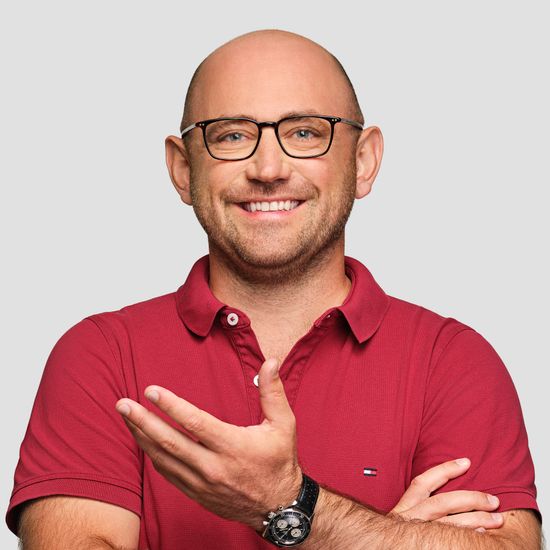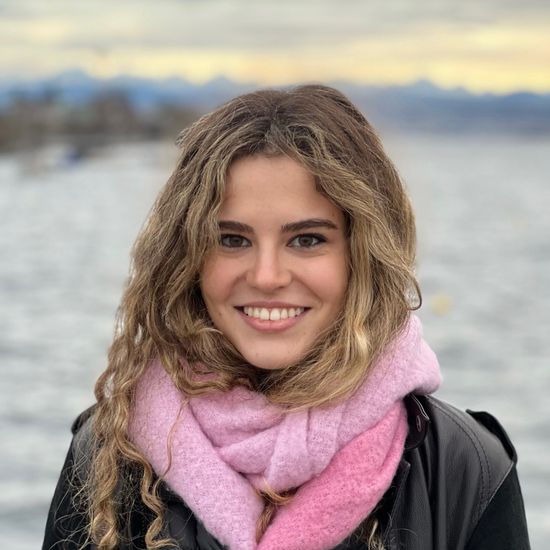An error occurred while loading the video player, or it takes a long time to initialize. You can try clearing your browser cache. Please try again later and contact the helpdesk if the problem persists.
Optimization is ubiquitous in industry and research. However, many optimization problems of interest are hard to solve. In this lecture Lucia, Julien and Daniel show you how quantum computing approaches combinatorial optimization problems. You will learn how to solve optimization problems on quantum computers and the algorithms to do so. The course is aimed at university level students with a technical background. Prior knowledge of quantum computing is helpful but not necessary.
Language: English
English, Deutsch
Expert, Quantum Computing
Course information
Optimization is ubiquitous in industry and research and has many different applications. Portfolio construction, supply chain, and maximum-cut are all examples of optimization problems. However, many optimization problems of interest are hard to solve. Quantum computing is a growing and novel computing paradigm in which information is processed with the laws of quantum mechanics. Crucially, it has the potential to tackle hard optimization problems.
This course is aimed at professionals and students with a technical background who are interested in quantum optimization.
In this course you will learn how quantum computers tackle hard optimization problems. For example, you will learn about adiabatic quantum computing and variational algorithms on gate-based quantum computers. After the course, you will be able to understand state-of-the-art research in quantum optimization.
The workload for the course is approximately 3-5 hours per week, depending on prior knowledge.
The course consists of short study videos accompanied by tests, and a final exam. You must achieve at least 50% of the points for a certificate of achievement, with the final exam accounting for 50% of the points and have accessed at least 50% of the resources to receive a certificate of attendance.
The prerequisites for the course are basic knowledge of quantum information. Knowledge of classical optimization is not required but may help you better appreciate some of the course material.
Attention: This course is currently in self-study mode, in which you do not have access to graded assignments/exams. Therefore, we can only issue you a certificate of participation.
What you'll learn
- Approaches to quantum optimization
- Challenges and prospects of quantum optimization
- State of the art quantum optimization algorithms
- Implementing quantum optimization algorithms on superconducting qubits
Who this course is for
- Quantum computing enthusiasts
- Professionals in classical optimization
- Students
Course contents
Intro
Week 1:
In the first week you will learn the basics of how to carry out optimization tasks on quantum computers. We will learn about optimization classes, and in particular, quadratic unconstrained binary optimization. Next, we learn how to encode such problems in Ising Hamiltonians and how to tackle them with quantum annealing and variational algorithms such as quantum approximate optimization.Week 2:
In the second week we will study improvements and extensions to the algorithms from week 1 and how they can be executed on superconducting qubits. You will also learn about a non-variational approach to optimization problems on a quantum computer. Finally, there are two interviews that wrap up the course, where we discuss possible applications, challenges and an outlook for quantum optimization.Final exam
I like, I wish
Enroll me for this course
Learners
Rating
This course was rated with 4.09 stars in average from 101 votes.
Certificate Requirements
- Gain a Record of Achievement by earning at least 50% of the maximum number of points from all graded assignments.
- Gain a Confirmation of Participation by completing at least 50% of the course material.
- Gain an Open Badge by completing the course.
Find out more in the certificate guidelines.
This course is offered by

Julien Gacon is a Ph.D. candidate working jointly with the Quantum Technology group at IBM Research Europe — Zurich and the Computational Quantum Science Lab at EPFL, Lausanne. His current research focuses on closing the gap of quantum algorithms and near-term quantum devices on both the algorithmic and circuit level. Prior to this position, he worked on the open-source software Qiskit and continues developing core and applications packages during his research.
He received a B.Sc. and M.Sc. degree in Computational Science and Engineering from ETH Zurich. During his studies, he focused on numerical simulation techniques and specialized in Quantum Simulation and Computing, and Astrophysics.
Dr. Daniel J. Egger is a Staff Research Scientist working at IBM Quantum, IBM Research – Zurich. His research focuses on the control of quantum computers and on the practical applications of quantum algorithms in finance, simulation, and optimization. Dr. Egger joined IBM in 2016. From 2014 to 2016 he worked in the asset management industry as a risk manager. He earned a PhD in theoretical physics in 2014 for his work on quantum simulations and optimal control of quantum computers based on superconducting qubits.

Dr. Stefan Woerner is a Principal Research Scientist and Manager of the Quantum Applications Research & Software group of IBM Quantum at IBM Research Europe - Zurich. He received a Doctor of Sciences in Operations Management from ETH Zurich. The focus of his research is the development and analysis of quantum algorithms for optimization, simulation, and machine learning as well as their practical applications.

Lucía is a research intern at the Quantum Applications Research & Software group of IBM Quantum in IBM Research - Zurich. Her research focuses on quantum approximate optimization, with special interest in the QAOA and in black box optimization methods. She received an MSci degree in Physics with Theoretical Physics from Imperial College London. In her master's studies, she focused on developing computational methods to explore concepts of quantum gravity, like black hole entropy and spacetime mutual information.